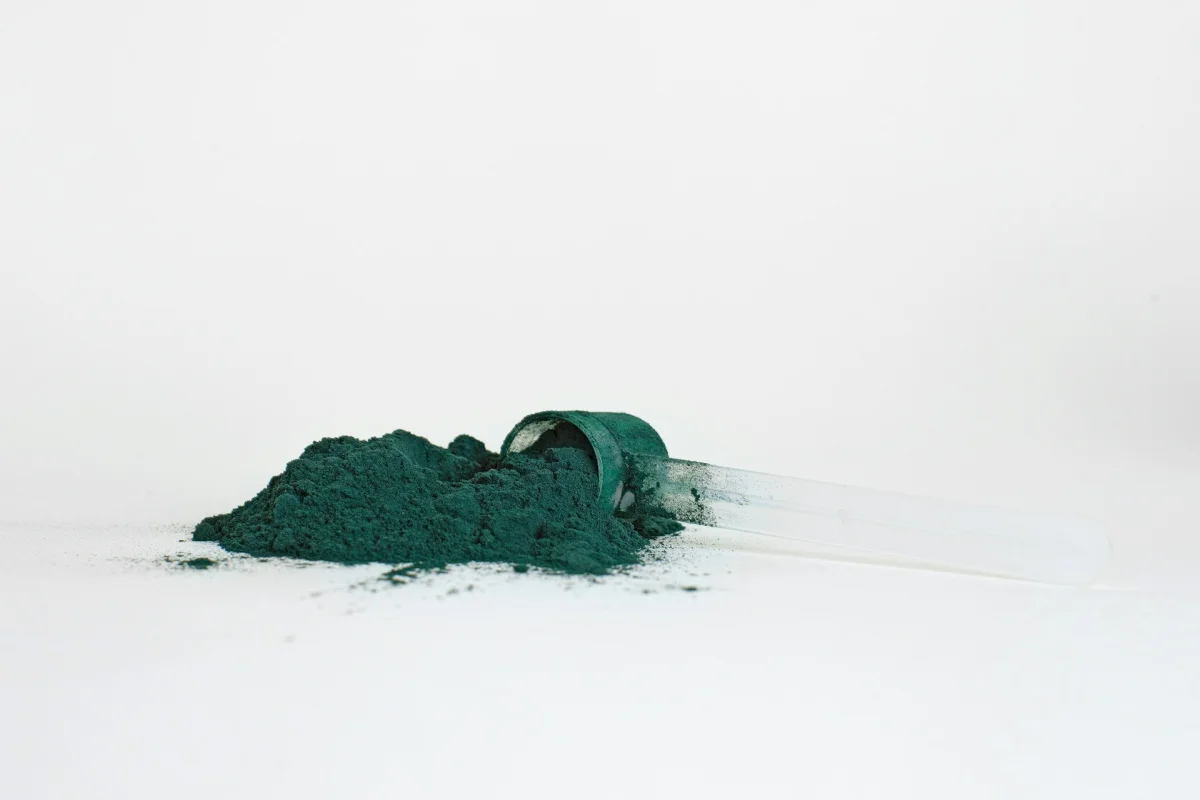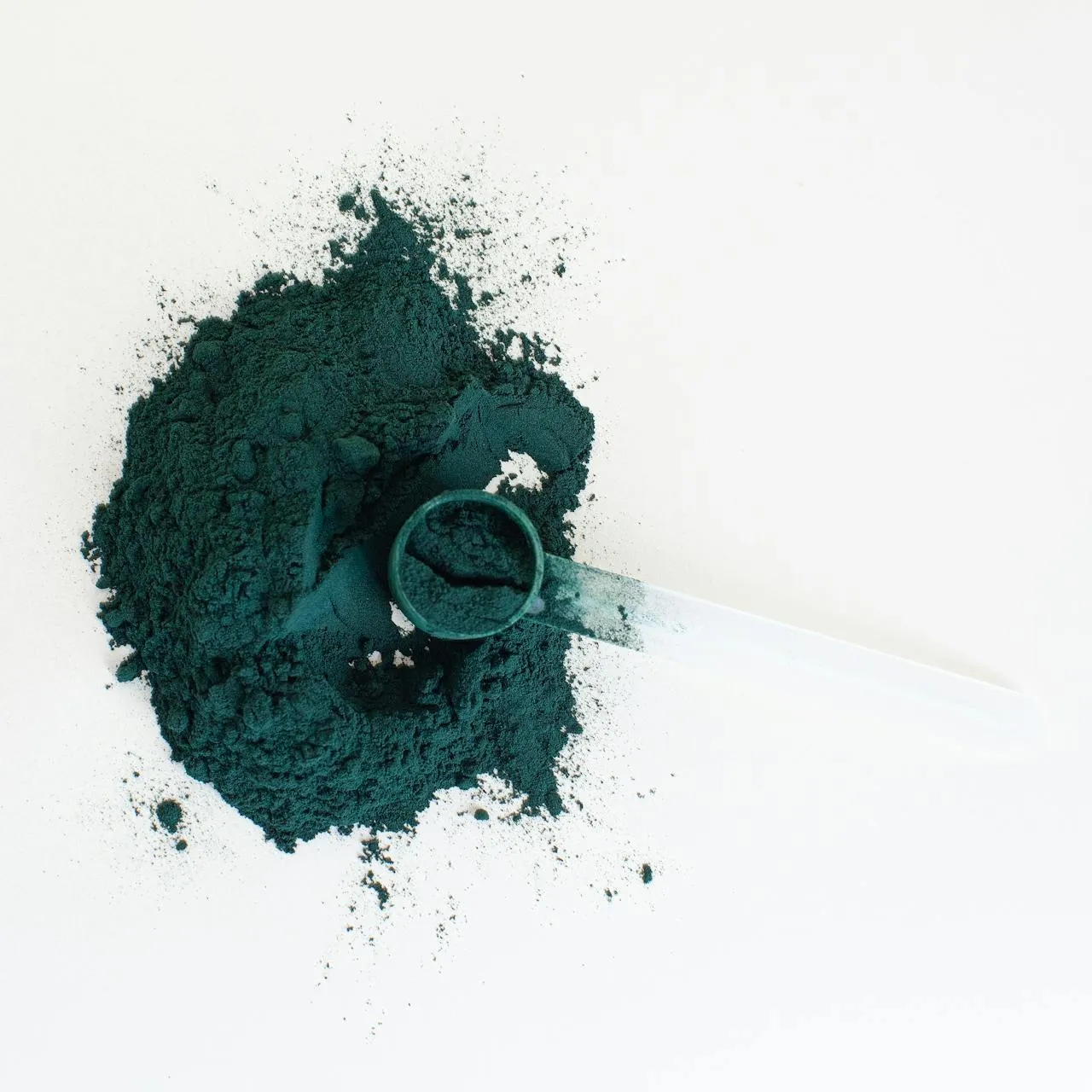 Monday, March 17, 2025
Monday, March 17, 2025Spirulina: The nutrient-rich microalga with immense health potential
Spirulina is one of the most nutrient-dense and well-researched microalgae in the world. Composed of cyanobacteria, it is often referred to as a superfood due to its impressive composition of proteins, vitamins, minerals, and antioxidants. In this blog, we will take an in-depth look at Spirulina, its health benefits, scientific studies, and potential risks.

What is Spirulina?
Spirulina is a blue-green microalga that thrives in saline and alkaline waters. It is one of the oldest life forms on our planet and was already valued by the Aztecs as a source of nutrition. Due to its high protein content of about 60-70% and its rich profile of micronutrients, it is used worldwide as a dietary supplement. Today, Spirulina is cultivated both in natural waters and controlled farms to ensure consistent quality and purity.

Nutritional Profile of Spirulina
Spirulina offers an exceptional combination of essential nutrients:
Proteins: It contains all nine essential amino acids, making it a valuable plant-based protein source.
Vitamins: Enriched with Vitamin B1 (Thiamine), B2 (Riboflavin), B3 (Niacin), and Beta-Carotene (a precursor to Vitamin A). Additionally, Spirulina contains small amounts of Vitamin E and Vitamin K.
Minerals: It provides significant amounts of iron, magnesium, potassium, calcium, zinc, and selenium.
Phycocyanin: A powerful antioxidant with anti-inflammatory properties, responsible for its characteristic blue-green color.
Omega-6 fatty acids: Particularly gamma-linolenic acid (GLA), important for cell health and known for its anti-inflammatory effect.
- Chlorophyll: The green plant pigment acts as a detoxifier and may enhance oxygen supply to cells.

Health Benefits of Spirulina
Spirulina is the subject of numerous scientific studies confirming its diverse health benefits:
Support for the Immune System
Studies show that Spirulina can stimulate the production of immune cells, thereby strengthening the immune system. A study in the "Journal of Medicinal Food" found that Spirulina positively influences the immune systems of both animals and humans. Notably, T-cells and macrophages appear to benefit from the bioactive compounds in Spirulina, potentially enhancing defenses against infections.Antioxidant and Anti-Inflammatory Effects
Phycocyanin, which gives Spirulina its blue color, exhibits strong antioxidant properties. A study in "Oxidative Medicine and Cellular Longevity" demonstrated that this compound can reduce oxidative damage caused by free radicals. This may be particularly beneficial for individuals suffering from chronic inflammation or high oxidative stress, such as from intensive exercise or environmental toxins.Support for Heart Health
Spirulina may help lower cholesterol levels and regulate blood pressure. A meta-analysis published in "Clinical Nutrition" showed that daily supplementation with Spirulina can reduce LDL cholesterol (the "bad" cholesterol) and increase HDL cholesterol (the "good" cholesterol). Additionally, Spirulina's vasodilating properties may contribute to lower blood pressure and reduce the risk of cardiovascular disease.Improvement of Athletic Performance
Due to its high protein content and antioxidant properties, Spirulina may reduce fatigue and promote muscle recovery. A study in the "European Journal of Applied Physiology" found that athletes who consumed Spirulina showed improved oxygen uptake and reduced oxidative damage. Furthermore, Spirulina may contribute to reducing muscle soreness and accelerating recovery following intense training sessions.Support for Brain Function
Spirulina contains bioactive compounds that exhibit neuroprotective properties. Studies indicate that Spirulina might provide protective effects against neurodegenerative diseases such as Alzheimer's. Thanks to its antioxidant properties, Spirulina may help minimize neuronal damage and positively influence cognitive functions.- Blood Sugar Regulation
Research, including a study in the "Journal of Diabetes Research", suggests that Spirulina can positively influence blood sugar levels and improve insulin sensitivity. This could be particularly beneficial for individuals with type 2 diabetes, as Spirulina may help mitigate post-meal blood sugar spikes and thereby reduce the long-term risk of diabetes.

Potential Risks and Side Effects
Despite its numerous health benefits, several aspects should be considered:
Heavy Metal Contamination: Spirulina from non-certified sources may be contaminated with heavy metals. Therefore, it is of utmost importance to pay attention to quality and origin.
Autoimmune Diseases: Since Spirulina can stimulate the immune system, individuals with autoimmune diseases should exercise caution and consult a physician.
Gastrointestinal Issues: In rare cases, Spirulina may cause bloating or stomach discomfort.
- Blood Thinning Effect: Spirulina may influence blood coagulation and should be consumed cautiously by individuals with bleeding disorders or before scheduled surgeries.

Conclusion
Spirulina is a remarkable microalga with an impressive nutritional profile and numerous health benefits. Scientific studies support its positive effects on the immune system, cardiovascular health, athletic performance, and blood sugar regulation. Nevertheless, quality as well as individual health factors should be considered to avoid potential risks. As a dietary supplement, Spirulina can be a valuable addition to a balanced diet.


